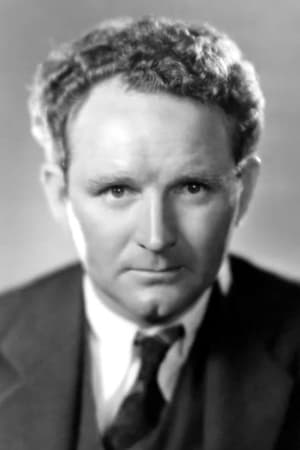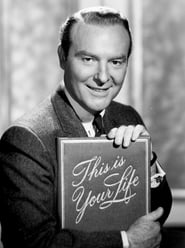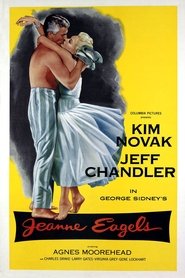
Frank Borzage
From Wikipedia, the free encyclopedia Frank Borzage (April 23, 1894 – June 19, 1962) was an Academy Award-winning American film director and actor, known for directing 7th Heaven (1927), Street Angel (1928), Bad Girl (1931), A Farewell to Arms (1932), Man's Castle (1933), History Is Made at Night (1937), The Mortal Storm (1940) and Moonrise (1948). In 1912 Borzage found employment as an actor in Hollywood; he continued to work as an actor until 1917. His directorial debut came in 1915 with the film The Pitch o' Chance. He was a successful director throughout the 1920s, but reached his peak in the late silent and early sound era. Absorbing visual influences from the German director F.W. Murnau, who was also resident at Fox at this time, Borzage developed his own style of lushly visual romanticism in a hugely successful series of films starring Janet Gaynor and Charles Farrell, including 7th Heaven (1927), for which he won the first Academy Award for Best Director, Street Angel (1928) and Lucky Star (1929). He won a second Oscar for 1931's Bad Girl. He directed 14 films between 1917 and 1919 alone. His greatest success in the silent era was with Humoresque, a box office winner starring Vera Gordon. Borzage's trademark was intense identification with the feelings of young lovers in the face of adversity, with love in his films triumphing over such trials as World War I (7th Heaven and A Farewell to Arms), disability (Lucky Star), the Depression (Man's Castle), a thinly disguised version of the Titanic disaster in History Is Made at Night, and the rise of Nazism, a theme which Borzage had virtually to himself among Hollywood filmmakers from Little Man, What Now? (1933) to Three Comrades (1938) and The Mortal Storm (1940). His work took a spiritual turn in such films as Green Light (1937), Strange Cargo (1940) and The Big Fisherman (1959). Of his later work only the film noir Moonrise (1948) has enjoyed much critical acclaim. After 1948, Borzage's output was sporadic. In 1955 and 1957, he was awarded The George Eastman Award, given by George Eastman House for distinguished contribution to the art of film. Frank Borzage died of cancer in 1962, aged 68.
Known For
Credits
- 2008 ·Murnau, Borzage and Foxas Self (archive footage) (uncredited)
- 1957 ·Jeanne Eagelsas Self (uncredited)
- 1955 ·Hollywood Previewas Self
- 1953 ·The Oscarsas
- 1952 ·This Is Your Lifeas Self
- 1918 ·The Atomas
- 1917 ·Fear Notas Franklin Shirley
- 1917 ·Wee Lady Bettyas Roger O'Reilly
- 1917 ·A Mormon Maidas Tom Rigdon
- 1917 ·A School for Husbandsas Hugh Aslam
- 1916 ·Immediate Leeas Immediate Lee
- 1916 ·Land O' Lizardsas The Stranger
- 1916 ·Intolerance: Love's Struggle Throughout the Agesas Extra (uncredited)
- 1916 ·The Courtin' of Calliope Clewas Calliope Clew
- 1916 ·Nugget Jim's Pardneras Hal
- 1916 ·The Pilgrimas The Pilgrim
- 1916 ·A Flickering Lightas Jim
- 1915 ·The Pitch o' Chanceas Rocky Scott
- 1915 ·Knight of the Trailas Bill Carey
- 1915 ·The Secret of Lost Riveras Tom Hornby - Prospector
- 1915 ·The Tavern Keeper's Sonas Juan Capella
- 1915 ·The Cup of Lifeas Dick Ralston
- 1915 ·In the Switch Toweras Joel Wharton
- 1915 ·In the Land of the Otteras Joe Eagle
- 1914 ·The Pantheras David Brandt
- 1914 ·The Typhoonas Renard Bernisky
- 1914 ·The Wrath of the Godsas Tom Wilson
- 1914 ·Love's Western Flightas
- 1914 ·Samsonas Bearded Philistine Extra (uncredited)
- 1914 ·A Flash in the Darkas
- 1914 ·The Wheel of Lifeas
- 1914 ·In the Sage Brush Countryas
- 1913 ·A Hopi Legendas
- 1913 ·A Cracksman Santa Clausas
- 1913 ·Retributionas
- 1913 ·Loaded Diceas
- 1913 ·Silent Heroesas
- 1913 ·In the Toilsas
- 1913 ·The Gratitude of Wandaas
- 1913 ·The Mystery of Yellow Aster Mineas
- 1913 ·Granddadas Mildred's Father
- 1913 ·The Drummer of the 8thas Jack Durand
- 1912 ·On Secret Serviceas



